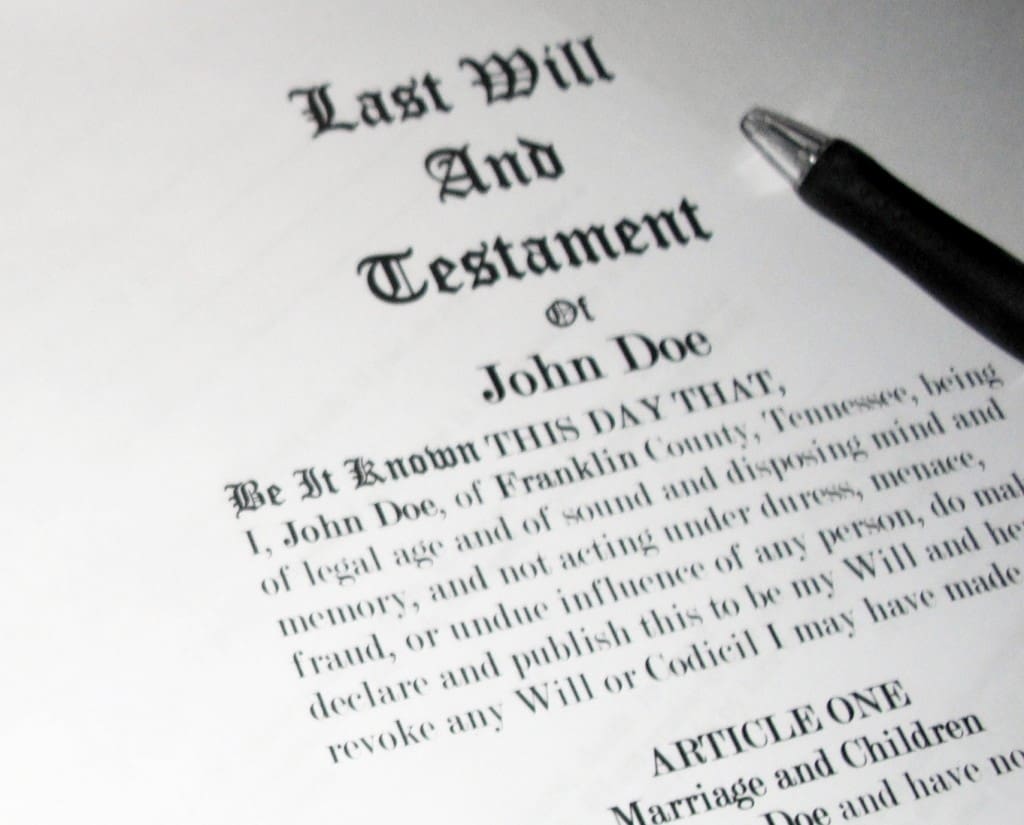Making a will is typically an unpleasant task as few people are comfortable contemplating their own death. It’s one important task many avoid. In fact, according to a 2012 survey by Rocket Lawyer, only 58% of Baby Boomers have one. That percentage drops to 29% for adults in their mid-thirties. 34% cite procrastination as the reason, while 22% believe they don’t need one and 21% say wills are too expensive.
In estate planning, there are only a couple of reliable ways to ensure the distribution of wealth according to your wishes and these are either by establishing trusts or making a will. (The debate about which is better isn’t for this article.) No matter what, if you fail to have a plan in place via a Trust or a Will and die without one, state laws will decide what happens to your property, your investments, and even your minor children. From do-it-yourself legal programs online to lawyers who specialize in comprehensive estate plans, you have many options when creating a will. Regardless of which one you choose, you’ll need to avoid these common mistakes in wills.
Failing to make updates
Anytime your personal situation changes, you should update your will with an amendment as soon as possible. This includes births, deaths, marriages, divorces and major changes in finances. At a minimum, you should check it once a year to make sure any recently acquired assets are included.
Using it to have “the last word”
Wills are solely for disposing of property and taking care of family after you pass. Let go of grudges and family feuds and avoid vitriol. You should also avoid illegal conditional bequests, namely those requiring marriage, divorce or change of religion.
Using a notary as a witness
Notaries are not witnesses and having a will notarized will not make it valid.
Failing to use an impartial witness
Do not use someone named in the will as a witness. Doing so will make it too easy for others to claim undue influence and challenge the standing of the will.
Making handwritten edits
Handwritten edits on a will always cause legal uncertainties. The law may allow you to cross out sections of your will by hand, but witnesses will need to acknowledge anything you add. In any situation where you are modifying your will, it’s better to consult an attorney when making changes.
Failing to include a residuary clause
If there are assets left over after the distribution of your estate, a residuary clause allows you to choose one or more beneficiaries for whatever remains.
Failing to include a health care directive
A health care directive makes certain that medical staff know your wishes regarding medical treatment in the event you cannot communicate your preference. You can also appoint a spouse, friend or family member to make such decisions on your behalf. However, bear in mind this may be too heavy a burden for family members under stress.
Ignoring state specific laws
State specific laws govern wills, so be sure yours complies with those of your state of residence. These may include witness requirements, who can be a witness, executing procedures, revocation, conditions in which a will may be contested and more. If you move from one state to another, you must update your will to be compliant with the laws of your new home state.

